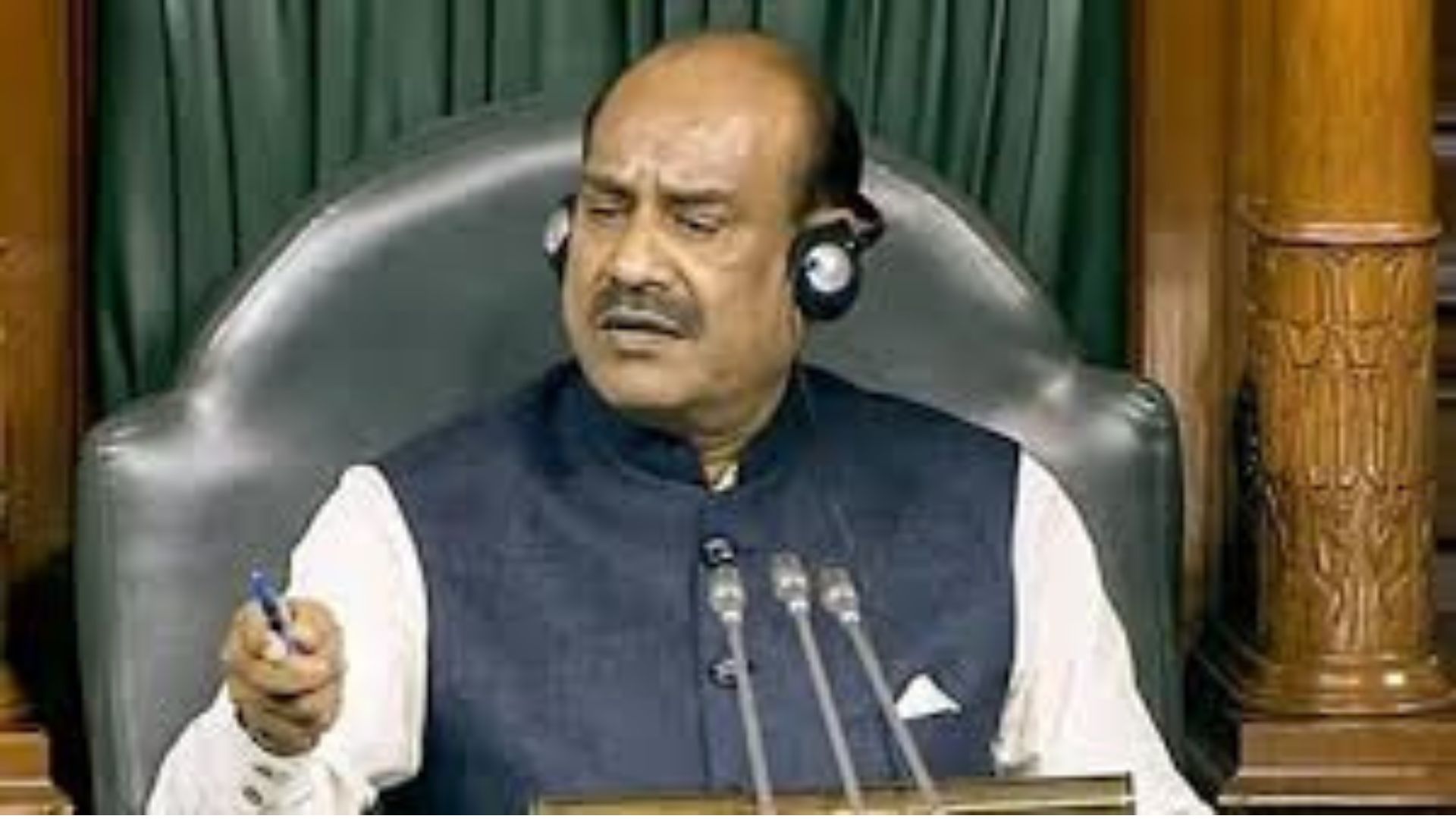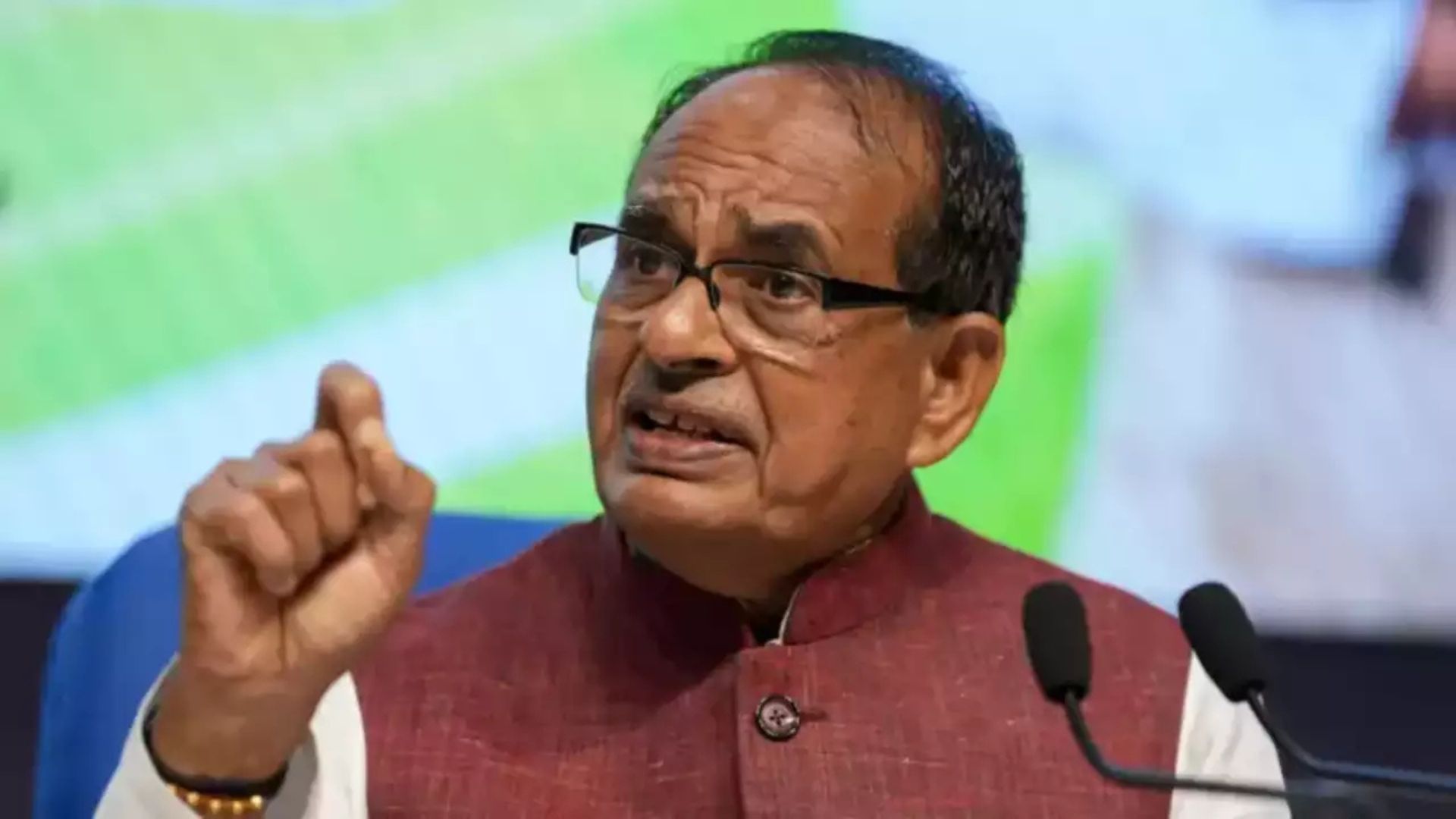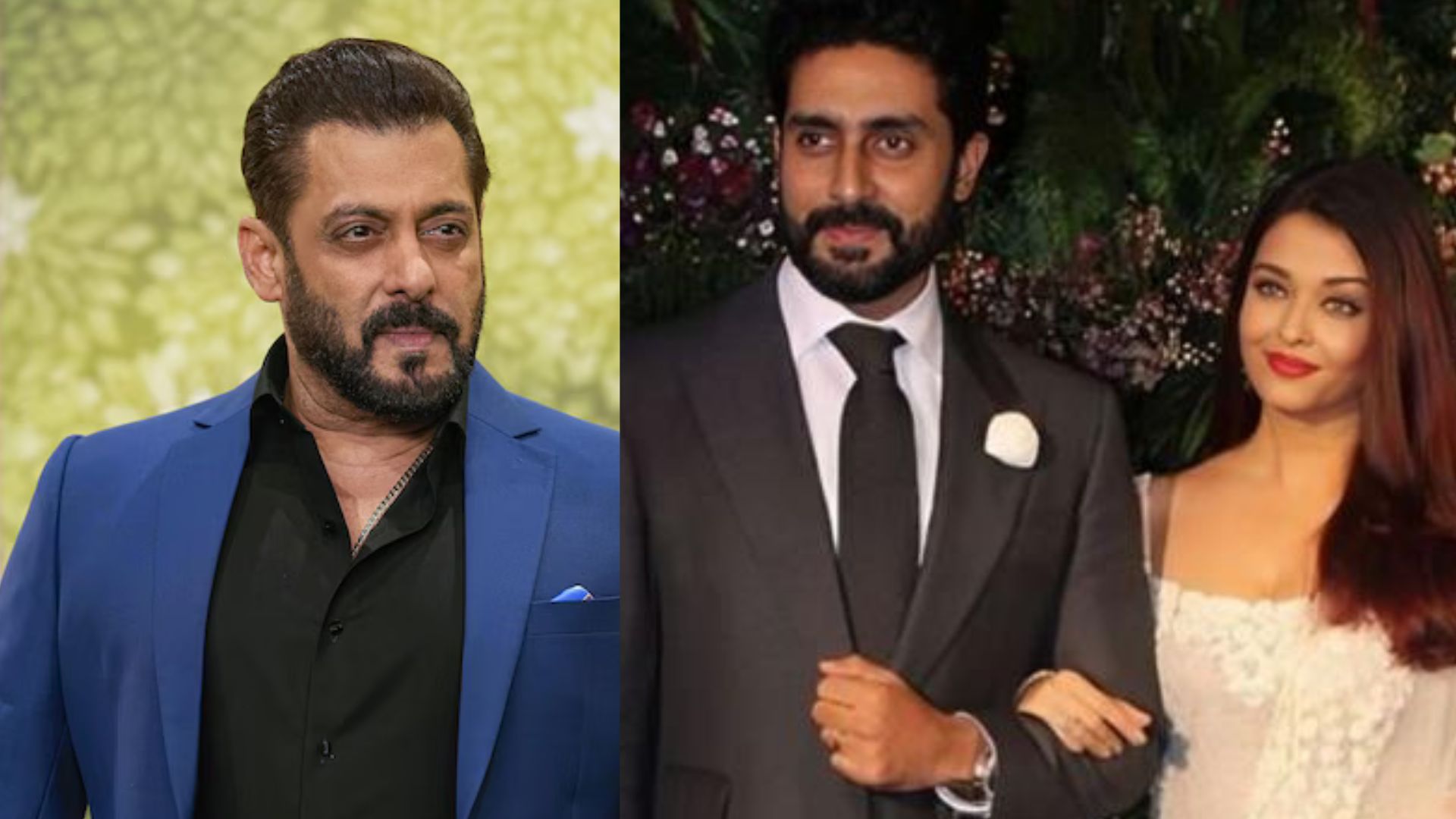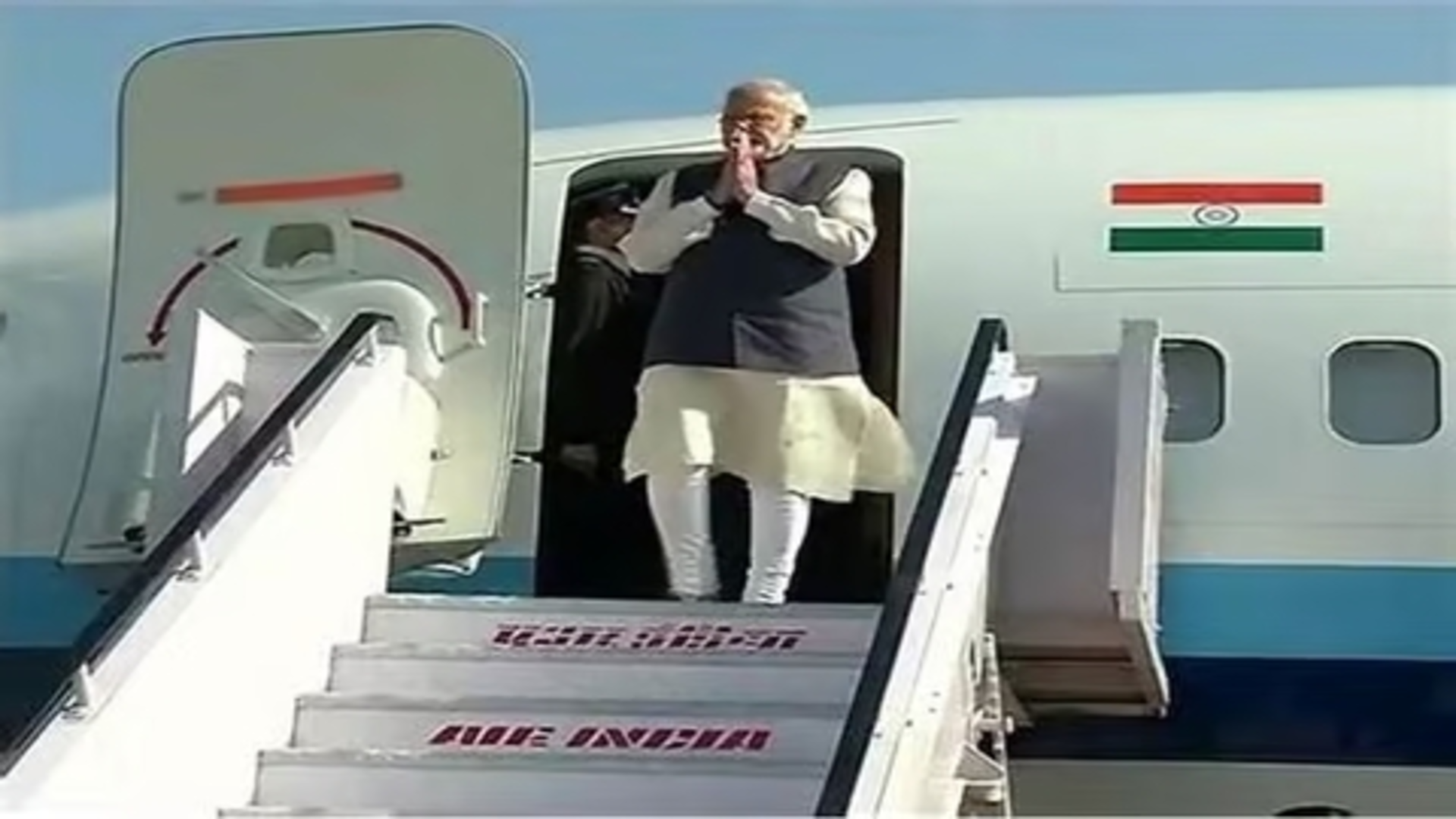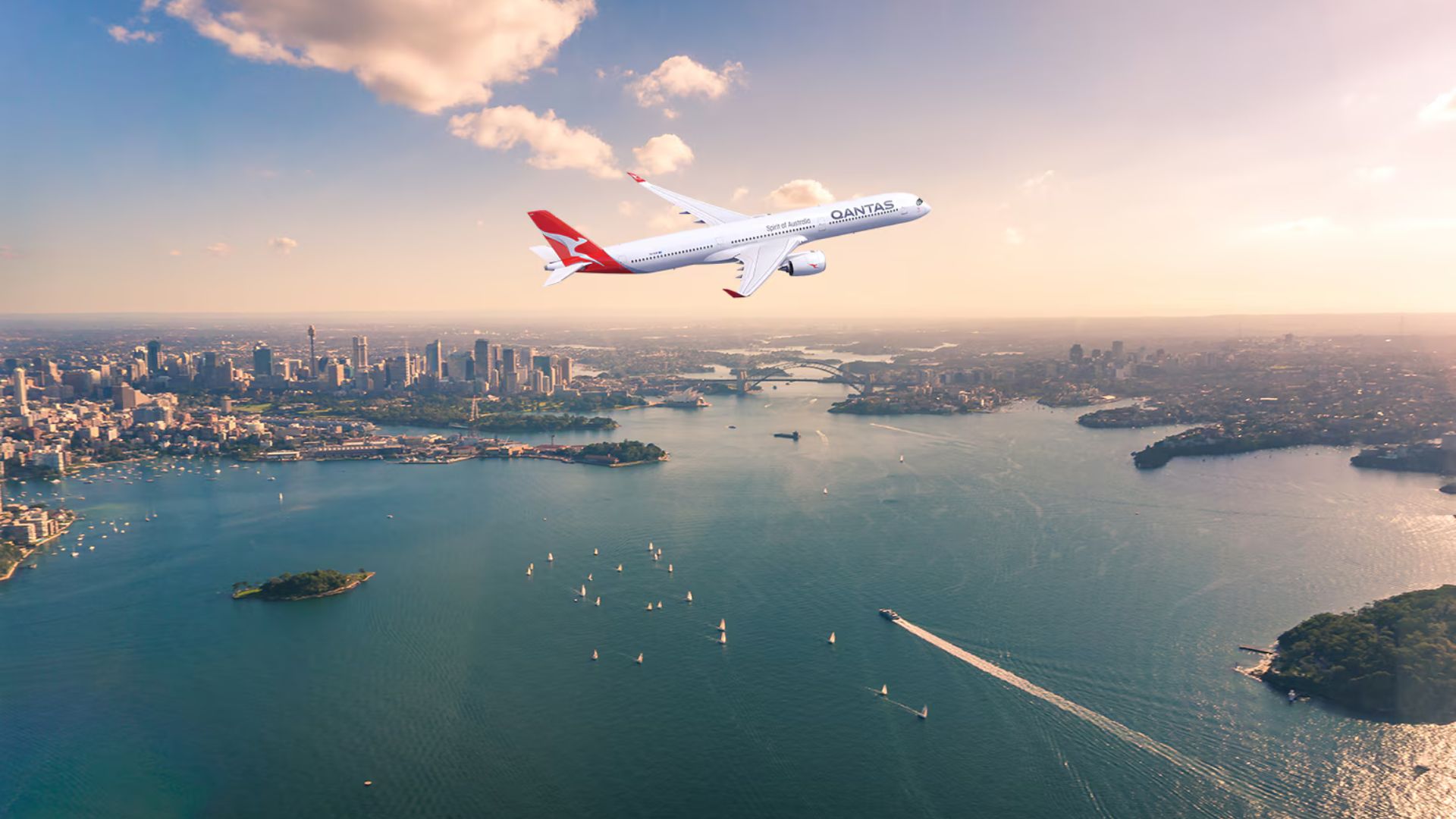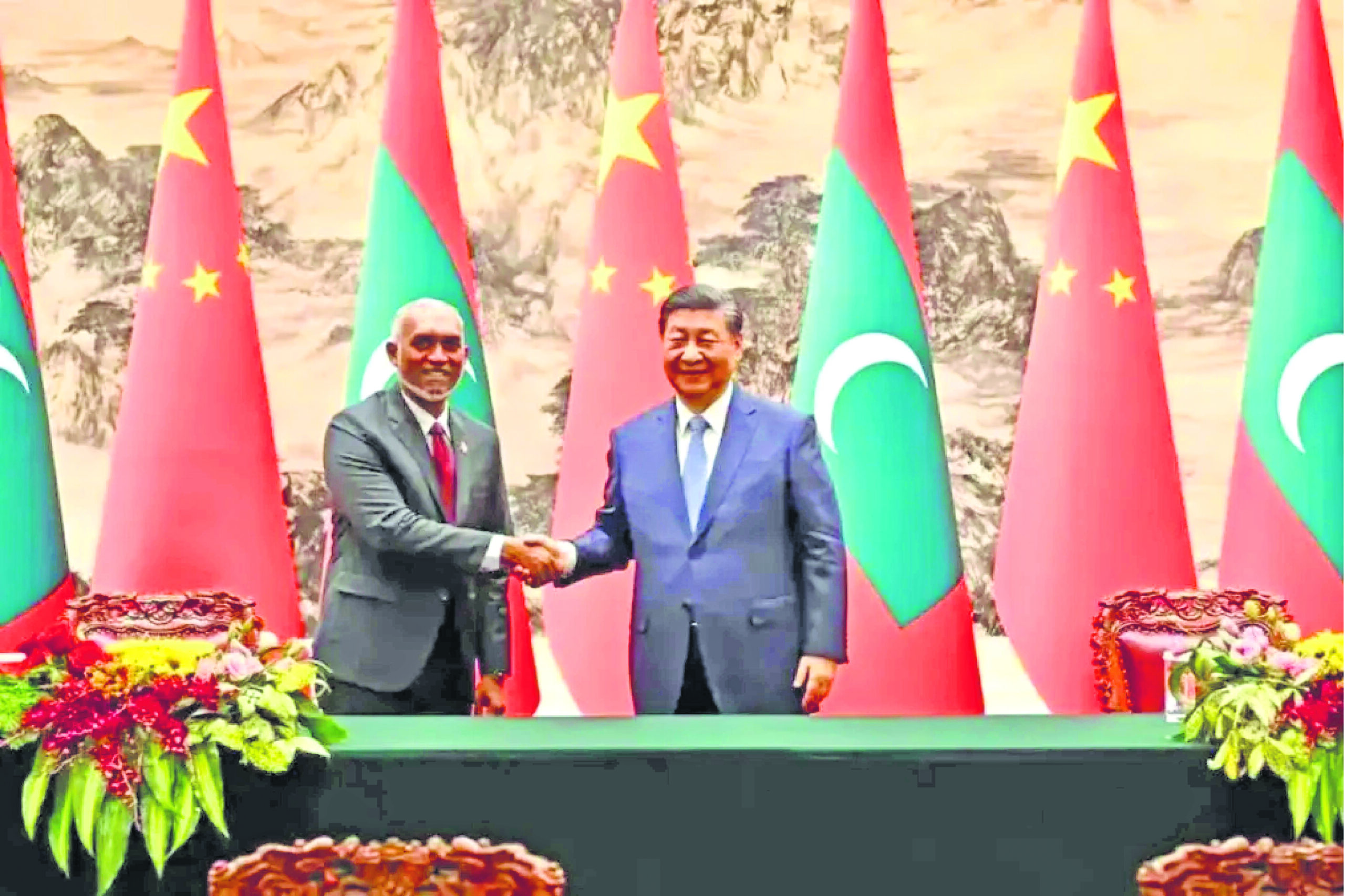
India-Maldives ties worsened over time, reaching its lowest point earlier this year when many Indian tourists stopped going to the Maldives after negative comments on social media about PM Modi.
India should seek to mend its frayed relations with the Maldives amid an ongoing withdrawal of its troops from the archipelagic state as ordered by Maldivian President Mohamed Muizzu.
Experts believe that if India tries to increase its influence in the Maldives, it will only make people there dislike India more.
Last week, local news outlets covered that 25 out of approximately 90 Indian troops stationed in the Maldives, specifically in the southernmost atoll (coral island) of Addu, have departed.
President Mohamed Muizzu, who assumed office in September of the previous year, pledged to expel the Indian security forces deployed in the Maldives for surveillance of its vast maritime borders.
Following negotiations with New Delhi, an accord was struck to ensure the complete withdrawal of 89 Indian soldiers along with their support staff from the archipelago, comprising 1,192 tiny coral islands, by May 10.
The newspaper reported that three Indian aircraft, including two helicopters and one fixed-wing airplane, will be manned by Indian civilian personnel, who have already reached their destination.
While there was no formal acknowledgment from either Maldivian or Indian officials, the publication mentioned that the Maldivian National Defence Force has verified the commencement of the Indian withdrawal.
The Maldives recently signed a “military assistance” pact with China while the process for the withdrawal of Indian troops was in progress.
The Maldivian defence ministry stated that the aim of the agreement is to strengthen “improved bilateral ties,” with China agreeing to offer training to Maldivian staff as part of the deal.
India is wary of China’s growing influence in the Indian Ocean, especially in the Maldives and the nearby nation of Sri Lanka.
“India benefits from being geographically close to countries like Sri Lanka, Nepal, Bhutan, and the Maldives,” stated the Observer Research Foundation, an Indian think tank.
“It needs to create more effective tools of persuasion or influence to make it evident why it is beneficial for its neighbours to align with India.”
In last year’s presidential election in the Maldives, Muizzu promised to do away with the country’s long-held “India First” approach. He won against Ibrahim Mohamed Solih, criticizing him for letting India have too much influence in the Maldives.
The relationship between India and the Maldives has gotten worse over time, reaching its lowest point earlier this year. This happened when many Indian tourists stopped going to the Maldives after Maldivian leaders made negative comments on social media about Indian Prime Minister Narendra Modi.
Maldivian ministers Malsha Shareef, Mariyam Shiuna, and Abdulla Mahzoom Majid faced suspension after they harshly criticized Prime Minister Narendra Modi over India’s backing of Israel in the Israel-Gaza conflict, using terms that suggested he was not acting in a respectable manner.
Muizzu’s insistence on the removal of Indian forces further worsened the already strained relations between the two countries.
New Delhi sees the Maldives islands, which is located along important shipping routes, as part of its area of influence in the Indian Ocean.
India’s concerns about security threats from Beijing have increased due to China’s expanding activities in the Indian Ocean and its growing influence in both the Maldives and neighbouring Sri Lanka.
Analysts suggest that the policies of India’s ruling Bharatiya Janata Party have led to cautiousness in the predominantly Muslim Maldives.
“Modi’s emphasis on religion in Indian politics may be viewed with caution by the Maldives, a country where only Muslims can become citizens,” stated Matias Otero Johansson, an independent political analyst from Sweden, in comments to the SCMP media outlet.
Muizzu’s “India out” effort has highlighted fears among locals that Indian soldiers in the Maldives threaten the country’s freedom, he mentioned.
Johansson said that as China tries to offset the power of India and the US, it naturally acts as a balancing power. It has been working to increase its influence over important sea trade paths that provide resources to the People’s Republic of China.
In this way, Beijing is taking advantage of the situation at the right time because of the problems between India and the Maldives.
China’s Strategy
India’s 90 security members in the Maldives mainly helped with rescue and aid efforts.
Yet, their being there sparked the move for the country to lessen its close relationship with India and get closer to China.
“Nothing really shows that the Modi government hasn’t supported the Maldives,” Harsh Pant, a professor of international relations at King’s College London, told SCMP.
“The President of the Maldives has expressed concerns that the small number of Indian troops affects the country’s independence, yet he didn’t hesitate to agree to a not-so-transparent defence agreement with China,” Harsh Pant further stated.
“It looks like Muizzu is following China’s approach, and that’s causing concern among many people in the Maldives.”
The Maldivian Democratic Party (MDP) leads the opposition in the Maldives. They were the ruling party when Ibrahim Mohamed Solih was president and maintained strong connections with India during that period.
Recently, the MDP and other opposition groups came together to release a statement condemning the current government’s Progressive Party of Maldives for its negative position towards India.
According to Pant, Muizzu’s favoring of China might damage the Maldives’ relationships with the US and UK, given that India is viewed as an ally by Western countries.
Right now, it’s hard to tell how the problems between India and the Maldives will affect China’s important plans in that area.
Johansson mentioned that it’s still too soon to know whether the defense deal with China will really change the security situation, especially in terms of China getting permission to use Maldives land for military purposes.
However, Johansson added that if this happens, it would go against what Muizzu promised during his election campaign to resist foreign control.
Johansson believes that because the strategic situation is changing, Delhi needs to work harder to adjust its goals in the Maldives.
Most importantly, India should offer peace and try to rebuild trust with its neighbor, providing the Maldives with what it needs to balance out China’s power, Johansson suggests.
The author is a Defence, Aerospace & political analyst based in Bengaluru. He is also Director of ADD Engineering Components, India, Pvt. Ltd

